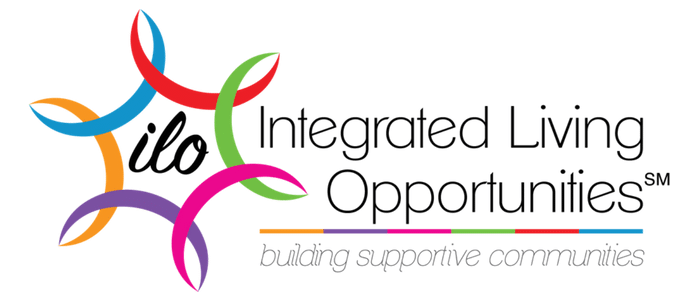Thursday, February 23, 2017
Hello everyone, and welcome back to our blog this week!
Today, we would like to take the opportunity to congratulate Debbie Fickenscher on the recent release of her book, The Right to a Full Life.
Debbie and her family are an important part of Integrated Living Opportunities (ILO). Debbie was one of the founding members of ILO and serves as Secretary on our Board of Directors. She has been trained in the administration of the Center for Independent Futures™ Skills Inventory™, an important step all ILO self-advocates must take on their journey to independent living. Her daughter Elaine was the first ILO self-advocate to achieve independent living, and both mother and daughter are active members of the Maryland community pod.
Debbie’s work with ILO has been an inspiration to participating families and self-advocates. It is not just Debbie’s work with ILO that is inspirational, however; she has been a lifelong advocate for her two adult children with disabilities, a long-standing Special Olympics coach (16+ years), and has more than 30 years experience as an educator in the Maryland school system. Debbie recounts all of her experiences as a parent of children with special needs, an advocate, a caregiver, and an educator in The Right to a Full Life.
The Right to a Full Life
Described as “an upbeat account of a mother’s journey parenting twins with different disabilities,” The Right to a Full Life is an autobiographical account of Debbie’s experience as she navigates her way through her family’s journey. It offers lessons learned and inspirations discovered that helped her gradually understand how her children could reach their fullest potential.
In the first chapter of the book Debbie acknowledges that early on, she never envisioned where Elaine would end up. As she writes, “Thirty-two years ago I gave birth to these two. Elaine’s diagnosis of Down syndrome was devastating, and at the time I never imagined that Elaine would develop the skills and confidence to live in her own place. I never imagined the full life she would have, nor did I envision the importance of surrounding her with a supportive and caring community.” She opens the book with a story about a recent visit that took place between her daughter Elaine and two medical students. This visit takes place at Elaine’s house, where she lives independently, with supports. As Debbie notes, these visits “help the students to understand the possibilities of living a rich life in spite of diagnoses of significant disability.”
After opening with this positive image, Debbie uses the rest of the book to highlight the various strategies she used to help her children gain and practice skills that lead to their adult successes. In regards to Elaine and her diagnoses of Down syndrome, Debbie writes, “The best we could do was to do as much as possible in the first years of her life.”
And so she did, by self-educating on the topic of Down syndrome, enrolling Elaine in various therapies and programs, practicing newly learned skills at home, and starting playgroups that helped both of her children with social skill development and inclusion. As Elaine began to grow and develop, Debbie found her role as a parent also expanded to that of advocate, therapist, caseworker, and educator. When Elaine aged out of the school system, Debbie then found herself investigating and coordinating funding and services for adulthood. Throughout the course of the book, Debbie helpfully shares insights she has gained through these experiences and provides information that can help parents that may be going through similar experiences.
In addition to sharing her strategies and tips for navigating the system, Debbie also shares her thoughts and emotions as a parent of children with disabilities. Though pragmatic, her discussion of Elaine’s medical challenges provides a snapshot into the emotional turmoil that she surely must have experienced from time to time. As she writes, “It wasn’t always easy to remain calm, but focusing on a positive outcome for my children helped me keep my composure.”
This, as she points out, remained true regardless of any challenge that came her way, whether medical, social, or educational.
The Right to a Full Life is truly an incredible and interesting read, filled with the story of how one woman’s determination, positivity, and perseverance can lead to success. From her children’s initial diagnosis, through their childhood, adolescence, and adulthood experiences, Debbie proves an inspiration to all parents of children with disabilities. All of us here at ILO thank her for sharing – and congratulate her on on one more amazing accomplishment as a special needs parent
Would you Like More Information?
The Right to a Full Life is currently available for purchase through Green Ivy Publishing’s website, and on Amazon, in both paperback and Kindle. For more information, please contact us, or visit Debbie’s biography on the ILO Meet the Board web page. If you are inspired to create an intentional community for your family member with disabilities, please let us know! We are currently welcoming new families into the ILO network and would love to meet you and learn about the hopes and dreams you have for your family with special needs.
